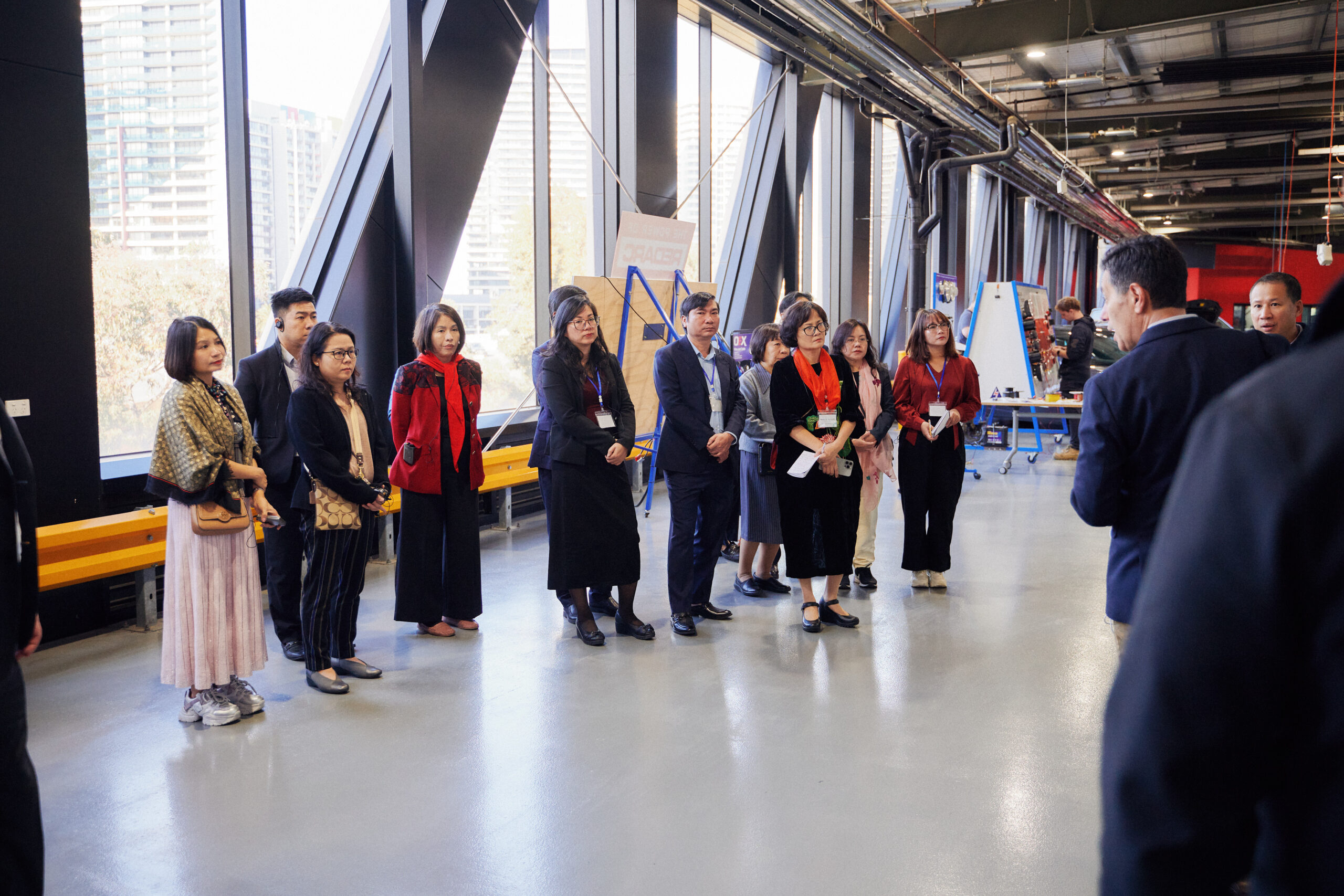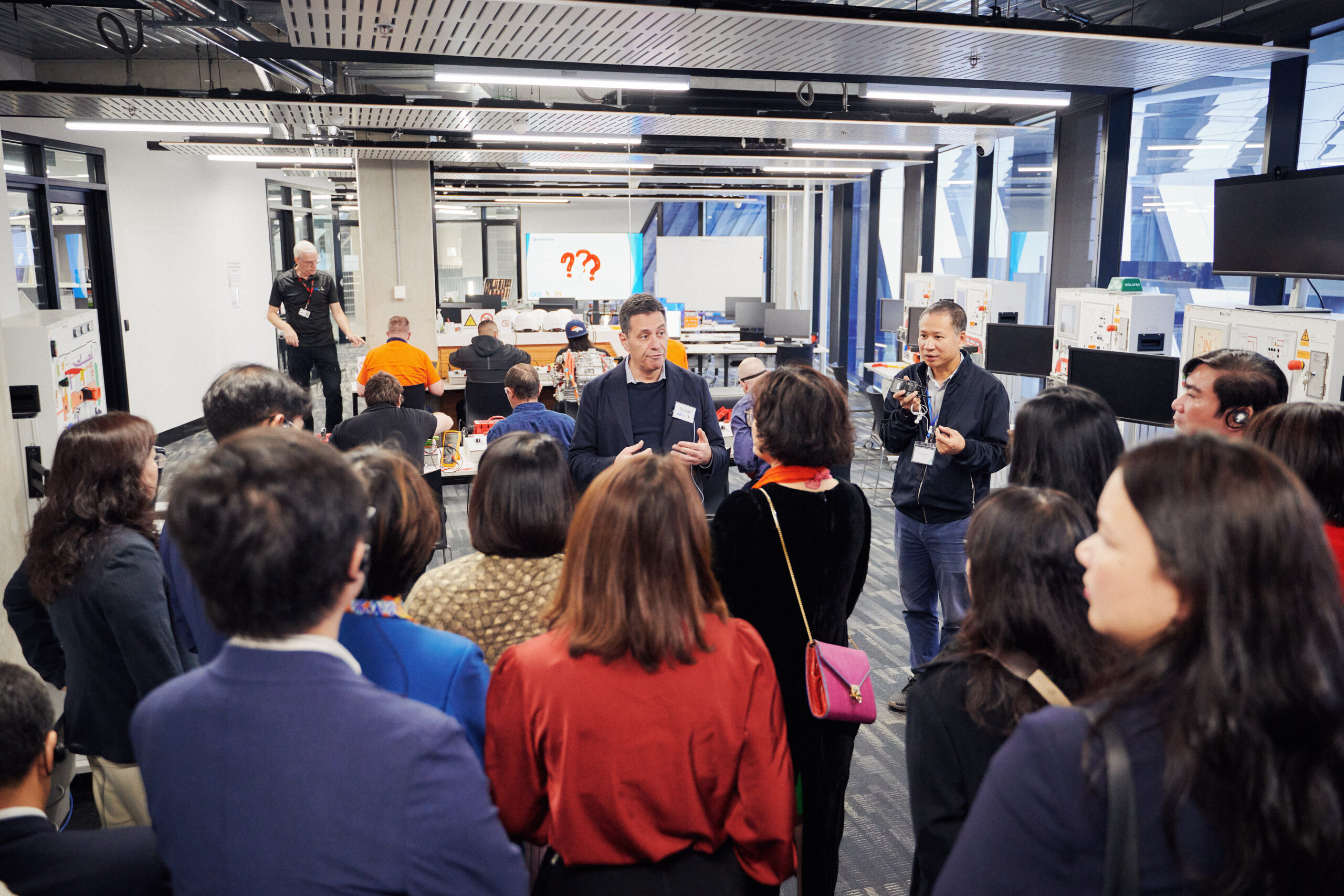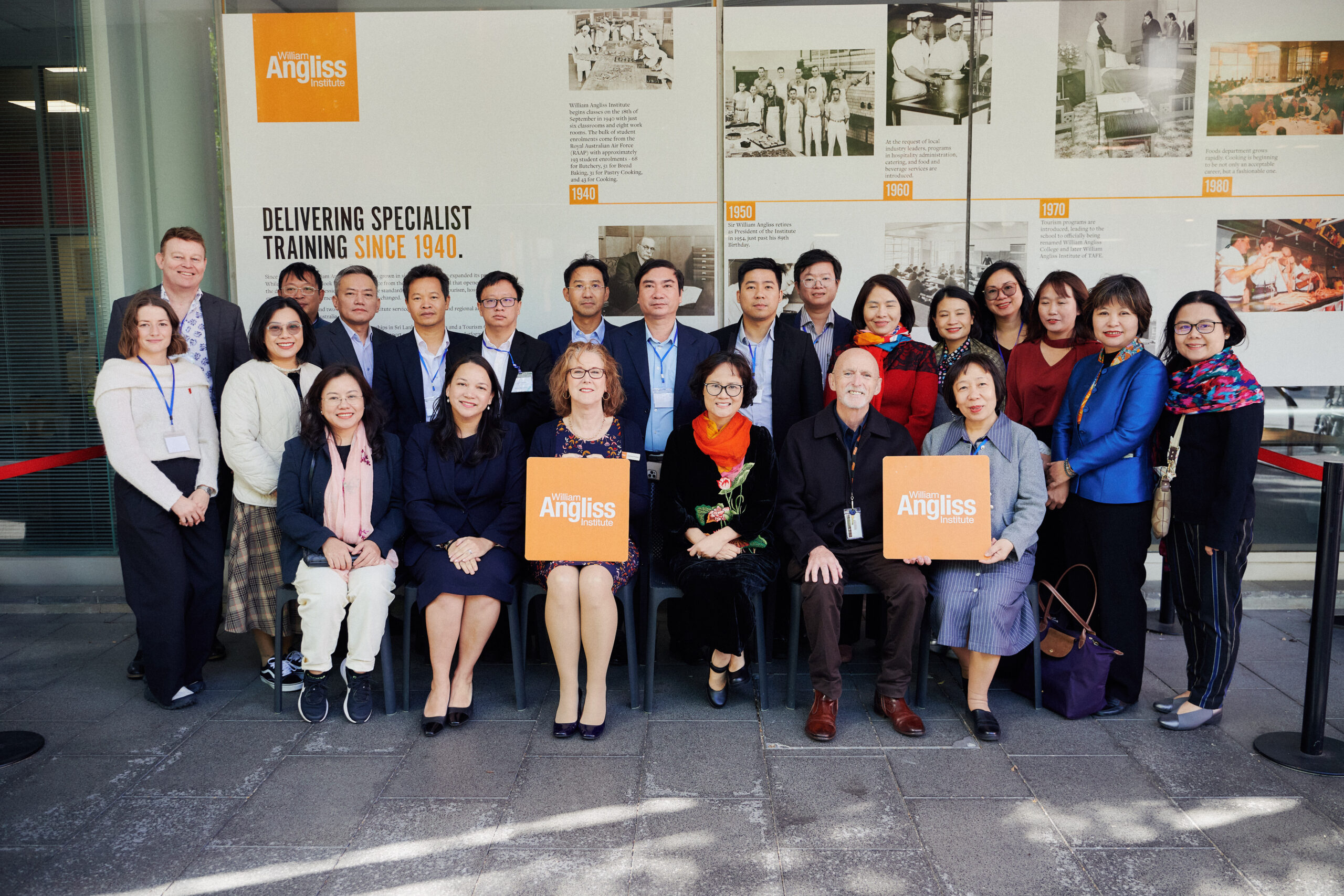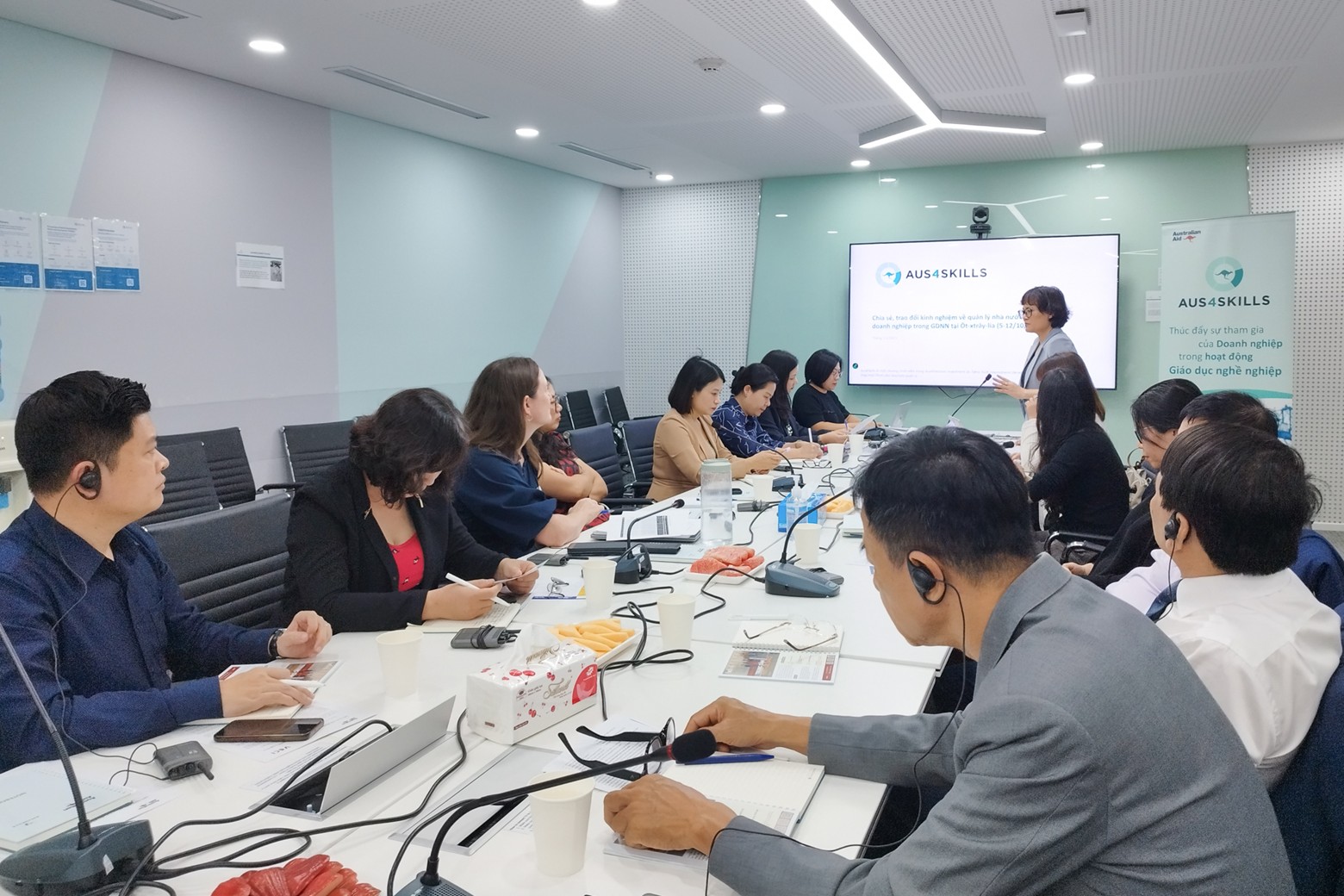
In October 2025, sixteen senior Vietnamese vocational education and training (VET) officials crossed classrooms, workshops and boardrooms across Australia to see how their regional neighbour keeps its skills system anchored to real jobs.
The delegation – part of the Aus4Skills Knowledge Exchange program supported by Australia’s Department of Foreign Affairs and Trade (DFAT) and managed by Tetra Tech – followed the chain from policy settings to training floors, then reconvened in Hanoi to translate what they saw into practical steps for Vietnam.

From classrooms to careers: Linking training with real jobs
Vietnam is working to align vocational training more tightly with industry needs and to lift the social value of VET as a credible, attractive and empowering pathway.
Australia offered a live case study: employers are woven into qualification design and assessment, and national frameworks help keep quality and recognition consistent.
Reflecting on this, Phạm Văn Sơn, Senior Official from the Office of the Government, pointed to Australia’s strong national frameworks as a standout feature.
“From this Knowledge Exchange, we have learned about the Jobs and Skills Australia (JSA) and Jobs and Skills Council (JSC) models, which link the government, industry and institutions,” he said.
“These follow the Australian Qualifications Framework (AQF), which means learners from any state are recognised nationwide for their qualifications. This allows graduates to confidently work anywhere in Australia.”
How Australia keeps employers at the centre of skills development
In Canberra, delegates met with high-level decision-makers to discuss how national policy steers the skills system and measures its impact. The delegation also took part in a Welcome to Country and smoking ceremony, toured Parliament House, providing participants the opportunity to understand better the Australian culture and engage with local traditions, fostering a deeper appreciation of Indigenous heritage and the values that shape Australian society.
Throughout the trip, they met national regulators and industry bodies including the Australian Skills Quality Authority (ASQA), Industry Skills Australia (ISA), the Office of TAFE Coordination and Delivery (OTCD), the Australian Industry Group (Ai Group) and DFAT.
These briefings showed how employer demand links to qualifications, quality assurance and delivery – keeping the system grounded in real workforce needs.

Work-ready by design: Classrooms that mirror industry
In Melbourne, the delegation traced how national frameworks and policy settings play out in practice.
At Bendigo Kangan Institute’s Automotive Centre of Excellence in Docklands, they toured a flagship hub for automotive and transport training. At William Angliss Institute, which specialises in food, hospitality and tourism, they saw students training with industry-standard equipment and assessments that mirror workplace tasks. Both sites demonstrated how practical learning environments build work-ready capability.
For Đặng Thu Hằng, Principal Official at the National Assembly, the visit highlighted how vocational pathways are viewed as genuine choices for students in Australia.
“We can see that the role of VET students and VET are highly regarded in Australia. VET no longer seems the second choice – one can choose to go to university, VET institutions or engage in VET teaching.”

Turning insight into action: Adapting what works for Vietnam
Back in Hanoi, a technical workshop co-hosted by DVCET and the Australian Embassy brought together the Vietnamese delegation, Australian representatives, VET experts, and the Logistics Industry Reference Council (LIRC).
The focus: identifying which elements of Australia’s employer-driven model could be realistically adapted now, and how to embed them sustainably.
Assoc. Prof. Dr Nguyễn Thị Việt Hương, Deputy Director General at the Department of Vocational and Continuing Education and Training (DVCET), reflected on how public perceptions of VET can shift in a supportive system.
“We can see that Australia has implemented many approaches to change people’s mindset. To love VET and enhance people’s participation in VET – This is one of my favourite impressions of Australia.”
Building lasting bridges: Government, industry and colleges together
Participants examined Vietnam’s own LIRC model and options to institutionalise council-type structures that sustain a stable tripartite relationship between the Government, industry and colleges.
The goal: to move from ad hoc cooperation to a predictable, built-in role for employers in qualification design and assessment – strengthening the bridge from training to employment.
Trần Thị Hồng Liên, Vice Director at the Bureau for Employers’ Activities (VCCI), emphasised how a well-structured partnership can help drive quality improvement.
“We have learned much from Australia to maintain the tripartite relationship. This can ensure the quality of VET is improved with the support of the State, the stewardship of industry and delivery of colleges. Another option for us is to further pilot the Sector Skill Council model.”

Sequencing reform: Practical steps toward system change
From the workshop and site reflections, several practical priorities emerged for near-term follow-up:
- Deepening structured employer involvement in qualification design, assessment and apprenticeships
- Clarifying the pathway and institutional arrangements for the LIRC
- Strengthening the link between policy and delivery so vocational training more reliably leads to employment
These areas will inform Vietnam’s ongoing policy and legislative work, following further consultation and testing.
For the delegates, the Knowledge Exchange illustrated how an employer-led system can work in practice through clear roles, shared accountability and nationally recognised qualifications that support mobility.
Vietnam will now consider how to adapt these elements to its own context.
To find out more about Tetra Tech’s work across the region: International Development Solutions – Tetra Tech International Development